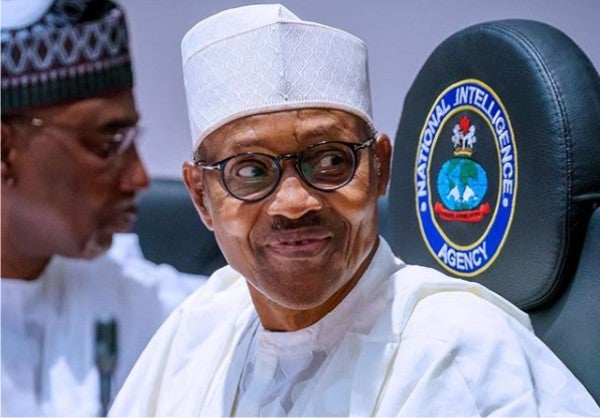
Over 150 Nigerian women groups, representing different regions, ethnicities, social and political allegiances and organizations for youths and persons with disabilities, have condemned the ministerial list submitted to the Senate.
Their grievance was contained in a letter on Thursday jointly signed by Dr. Abiola Akiyode Afolabi, Executive Director, Women Advocates Research and Documentation Center (WARDC), Ms. Ebere Ifendu, Convener, Women in Politics Forum (WIPF), Dr. Felicia Onibon, Founder, 100 Women Lobby Group and Dr. Nkoyo Toyo, CEO, Gender and Development Action (GADA).
The memo expressed dismay and utter disappointment that 87 percent male dominated the ministerial list.
It read: “This list maintains and reinforces the historical exclusion of women in the country, ignores the youth and people living with disabilities and thus inhibits the critical goal of achieving meaningful, equitable and participatory national development.
“The list submitted by Mr. President reneges on the repeated campaign promises by his government and creates a crisis of confidence in the integrity of our elected political leadership.
“Therefore, we write to convey a clear message of national importance to the nation, Mr. President, the legislature and those nominated as ministers.
“We wish to remind you about the unavoidable consequences of failing to use the appointment exercise as a tool to steer the affairs of country towards a desirable and sustainable future. Such a future is as conceived by well received and established best practices and obligations arising from the 2030 Global Agenda of the United Nations.
“It is with this in mind that we urge you, your colleagues and other decision makers, to remember the weighty privilege the nation entrusts to the few chosen to serve Nigeria as ministers.
We therefore request that you:
1. Solemnly remind all the distinguished Senators charged with the responsibility of “screening” the nominees for ministers, that more than any other moment in our history, they have a responsibility to Nigerians to act diligently in terms of their engagement with these nominees.
2. That you remind and require them to also serve as advocates and representatives of the millions of excluded groups as well as women of all ages who have a lot to contribute to the future of the country but are ignored and marginalized.
3. That you remind our honorable senators to bear in mind that, what they say and do as leaders in chambers, can positively advance our collective existence which in actual reality should mirror the country’s demographics, with a focus on equitable gender representation as well as the inclusion of diverse skills, expertise and knowledge.
4. That you encourage all senators to speak up and challenge government at all levels on the matter of women’s inclusion. Specifically, that they demand that equity is done in terms of the numbers, spread, roles and location in governance and government by female nominees (such that the few women on any list are not consigned to insignificance).
5. We ask that Senate draws the attention of the President and governors to Nigeria’s commitment to several National and International obligations such as the United Nations SDGs – which specifically put an onus on Nigeria to dramatically improve on its embarrassing levels of inequality.
6. We ask that Senate note in particular, that 30-35% has been reserved in some national policy documents, and that within our National laws, there are provisions that categorically call for the inclusion of youth (not too young to run) and persons with disabilities. We ask Senate to recall and operationalize the provisions of the 2006 National Gender Policy and the constitution of the ruling APC on these issues).
7. We ask you and other distinguished Senators to send a clear message to the Executive that women and other groups excluded from fair representation are your political constituents. As responsible leaders/ representatives of the people, we ask you to object to any list by the Executive that significantly excludes your constituencies who have informed you of their desire to be fully involved in the issues that affect them.
8. Lastly, we insist that the inclusion of constituents is actually an indispensable strategy for stemming the multi-faceted dimensions of political, social and economic crises facing Nigeria.”
Rice, a staple for Christmas celebrations in Nigeria, has become a luxury this year. Soaring…
Panic erupted on Saturday at a concert in Lagos when the stage collapsed during Odumodublvck’s…
The Federal Government of Nigeria has allocated ₦6,364,181,224 billion for the refurbishment and rehabilitation of…
The black market dollar to naira exchange rate for today, 22nd December 2024, can be…
The Nigerian National Petroleum Company Limited (NNPCL) has refuted claims that the 60,000 barrels per…
Manchester City finds itself in unprecedented turmoil, with relegation-level form showing little sign of improvement.…